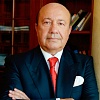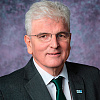More than two decades after the Cold War ended, Europe still stands divided. This has been proven in the last few days by the zero-sum logic being used to describe the situation of Ukraine, where the people apparently have to make a choice between a “European” and “Eurasian” future. Such an approach seems short-sighted. It is beyond doubt that Ukraine and all other the countries on the continent should be free to choose their partners for closer cooperation, but our to focus should be on the necessity of pan-European cooperation, instead of rivalry and confrontation between the West and the East.
More than two decades after the Cold War ended, Europe still stands divided. This has been proven in the last few days by the zero-sum logic being used to describe the situation of Ukraine, where the people apparently have to make a choice between a “European” and “Eurasian” future. Such an approach seems short-sighted. It is beyond doubt that Ukraine and all other the countries on the continent should be free to choose their partners for closer cooperation, but our to focus should be on the necessity of pan-European cooperation, instead of rivalry and confrontation between the West and the East.
The divisions in Europe concern more than Ukraine. The relationship between NATO and Russia is characterised by mutual mistrust. The EU-Russia relationship has not delivered on the promise of a genuine partnership. Several conflicts in south-eastern Europe remain frozen rather than resolved and represent a continuing risk of military conflict. And people to people movement between the EU countries and several others in Europe, especially Russia, remains difficult, and limited.
As Europeans, we now have a choice. We can either work together to address the real differences between us , in pursuit of our common interest in security and prosperity , and work together to manage pressing international issues, as we are now doing on chemical weapons in Syria or on Iran’s nuclear program, or we can allow divisions to persist and weaken all of us, even as new powers rise outside of Europe and Europe risks being increasingly marginalized in international affairs.
We believe the time is right to pursue cooperation. To be more specific, we believe a new cooperative European project is called for, one that conceives of Europe in its broadest sense geographically and politically, from Norway in the north to Turkey in the south and from Portugal in the west to Russia in the east. I Its goal should not be the creation of a single institution, but the creation of a Greater European zone of overlapping and deepening security, economic, political and cultural cooperation between all countries and institutions in the region.
We believe it is possible to begin laying the foundations of such a zone today and that such a zone is compatible with ongoing efforts to deepen Transatlantic and Eurasian cooperation Applying a Greater European framework should be useful in overcoming the bitter resentments over the situation in Ukraine. Enhanced stability, rule of law and better prospects for economic development should all be possible for Ukraine if it pursues improved relations both with the European Union and with Russia.
Beyond the controversy surrounding the Vilnius Summit, the priorities for cooperation are clear.
First, the current work by global powers on Syrian chemical weapons and Iran’s nuclear program should be capitalized on for wider cooperation across the old Cold War divide. We need joint efforts to advance the Geneva II diplomatic process on Syria and cooperation to overcomr the Jihadist threat there which if left unchecked may become a threat to us all. Joint action to stabilize post 2014 Afghanistan, and to shore up wider efforts at nuclear non-proliferation, including but going beyond Iran, are all priorities too.
Second, we need to build Greater Europe as a meaningful security community. This is where the trust-building challenge is the greatest and where it is most important. In the short-term, making progress will require persistent efforts to come to an agreement between the US/NATO and Russia on missile defence; continued dialogue on nuclear reductions; and finding a way to reinvigorate arms control discussions on conventional force issues in Europe.
Third, we need to build Greater Europe through deepened trade and investment links. The EU accounts for just over half Russia's foreign trade turnover and about 70 percent of its accumulated foreign investment. Over the past decade Russia has become the EU’s third largest trading partner, just after the United States and China, accounting for 7 percent of the EU’s exports and 11 percent of its imports. However, the trade relationship is asymmetrical. The oil trade accounts for 63 percent of total Russia-EU trade turnover and bi-lateral EU-Russia trade talks are stalled. There is huge potential to broaden and deepen ties in this area.
Fourth, we need improved energy cooperation. Despite the politicization of the energy relationship in recent years, cooperation in this area is in the interests of everyone. European companies are now suffering a significant competitive disadvantage compared to businesses in the US, which is benefitting from the shale gas revolution. If businesses choose to move to or invest in the US instead of Europe as a result, this will undermine the economic prospects for Europe as a whole. . Fifth, we need increased people to people contacts. Today, the ease of travel within the Greater European space differs enormously depending on one’s departure and destination points. This constrains opportunities for our citizens to travel for either business or leisure purposes and limits their ability to see how other Europeans live.
If current political leaders across the continent are willing to work on this agenda, we can put the significant differences of the past and the present behind us and leave the next generation of Europeans better placed to prosper, and to meet the global challenges of the future.
Source:






